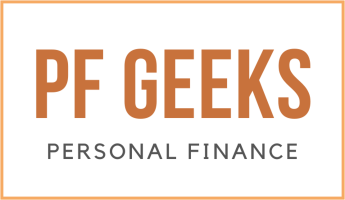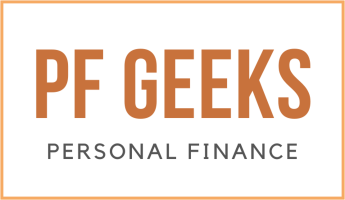According to a survey by Strategic Human Resource Management (SHRM), 70% of professionals want salary to be the first message they hear from the recruiter, and 59% of candidates believe salary is the leading factor contributing to a feeling of having a fulfilling career.
Yet, for many job seekers, addressing the subject of salary in an interview can be a source of great anxiety.
However, if done right, this discussion can be an effective way to ensure that both parties are in agreement on compensation and that your expectations align with the company’s.
So, how do you ask about salary in an interview?
I’m going to show you how.
Let’s dive in.
Contents
How to Ask About Salary in an Interview
A few candidates believe that asking salary-related questions during an interview might put them in a negative spotlight. However, that’s not always true.
Lynn Taylor, the author of Tame Your Terrible Office Tyrant and a leading workplace professional believes that all candidates should ask questions to determine whether the job fits their objectives.
She highlights applicants must be prepared to ask “any and all questions that will lead to the best possible match.”

Plus, it’s not like raising the question of salary will make the interviewer uncomfortable either.
In fact, studies have shown that 31% of managers are more than comfortable with candidates asking about salary and benefits in their first interview.
So, how can you make sure the conversation is comfortable and productive? Here are a few tips to consider:
Know the Figures
Every role in an industry has a specific market value. So, before kickstarting a conversation about potential salary, conducting market research is crucial.
This is often easier said than done because “knowing the figures” isn’t restricted to only learning about the average salaries in your industry. Instead, you must also consider many other factors like location, skills, and experience to land an accurate figure.
Market Worth
One of the most important things to consider when researching salary is market worth. This refers to the value an individual holds in a specific labor market.
To get this number, you can use tools like Glassdoor, Indeed, PayScale, Comparably, and LinkedIn Salary. These platforms will give you insight into how much professionals with similar skills and experience are earning in your industry.
For example, you may want to do your research on the salary for a machine learning expert in the IT industry with your skillset and experience. Based on your research, you might find that this role typically pays around $129K per year.
Top tip: Be sure to visit the company’s website before entering the interview room. Sometimes the official website may contain insights about the company’s pay policies.
Location
Getting paid less than what you’re worth only because you do not live in a major US city may sound unfair. But the fact is, the salary for a job in New York City may be different from that of the same position in a rural town.
Even Facebook’s CEO Mark Zuckerberg mentions that employees who relocate to low-cost cities “may have their compensations adjusted per the new locations.“
While that’s one opinion from a well-known CEO, other business owners tend to think like that, and your prospective employer might have the same mindset.
Of course, you cannot live in a low-cost state like Indiana and expect to get paid as high as someone residing in an expensive state like California.
That’s primarily because you’d be spending less on:
- Mortgage
- Auto loan
- Rent
- Health insurance
- Utilities
- Internet
- Mobile phone

Skills & Experience
Ever wondered why someone 10 years older than you makes significantly more money? The answer is experience.
According to Indeed, employers regard work experience as a critical part of a resume. In fact, they prefer reading that section first because it plays a vital role in moving you forward in the interview process.
Besides experience, whip-smart hiring managers look for a skill set in potential employees – after all; your capabilities contribute to a company’s growth.
So, always try to mention a blend of soft and hard skills on your resume to please the hiring manager and increase your chances of landing better pay.
Top tip: Here are a few examples of some evergreen abilities you should explore and hone regardless of the position you apply for.
Determine What’s Important for You
The phrase, “Money isn’t everything,” might have you rolling your eyes, but trust me, it isn’t just about the cash. Ask someone who’s paid more yet remains unfulfilled at their job.
So, fixing your focus solely on just salary isn’t always recommended. Instead, think of some long-term and more valuable compensations and benefits.
For instance, a startup or small company may not afford to pay a high salary for your role. However, they may offer opportunities that fit your long-term career objectives and resonate with you on a personal level instead.
Plus, if they can’t pay you what you’d like from the get-go, consider negotiating on some other compensation factors such as:
- Other benefits like insurance, retirement plans, and paid vacations
- A clear structure that offers you a promotion in 2 years or less of employment or lets you transition into your dream job down the road
- Flexible hours and remote working opportunities
- Non-cash benefits like stocks
Be Professional
Remember, your attitude should ideally demonstrate your willingness to work with the organization and your eagerness to bring value to the company.
So, the question shouldn’t appear like you’re asking for the salary because money is your primary concern.
Here are a few tips to help keep things professional:
- Use the word “compensation” instead of salary (this is a big one)
- Never quote beyond the industry salary ranges (though it may appear tempting to give it a shot, it might not be worth it as it often risks losing the job opportunity)
- Always highlight your passion for the job. Explain your enthusiasm for the role and that you’re certain a specific salary range aligns with the value you bring to the table
- Ask how the company’s compensation compares against its competitors
Demonstrate Your Worth
You should lay your foundation before declaring salary expectations during the hiring process. The key, however, is to maintain a sweet spot and not go overboard.
For instance, if you state your prior accomplishments and successes, always make sure that you never sound like you’re just boasting about your skills.

A guide published by Washington University in St. Louis recommends demonstrating a connection between your abilities and the employer’s needs. It helps recruiters see why you deserve what you’re asking for.
So, wherever possible, mention your skills by directing the conversation to how they can add to their company.
Top tip: It goes without saying, but when demonstrating your worth, always be honest with the hiring manager. Having taken numerous interviews and dealt with several candidates, they’re usually very quick to spot cunning behavior.
Be Smart
In case you get asked about salary expectations from the hiring manager, play smart by not mentioning the precise salary. Instead, always try to give them a range.
For example: if you’re applying for the position of a digital marketer, even though Indeed says the salary for digital marketing is $60,395, try to avoid stating the exact figure.
Instead, mention a salary range of something like $60k-$65k. This will make you sound more flexible.
Additionally:
- Always back your salary range with research
- Let the hiring manager know you looked for salary data from reputable sources and have invested time and effort to prepare for the interview.
Timing Is Everything
You may not realize how important timing actually is. But – when it comes to remuneration negotiations – it can mean the difference between getting what you want and not.
For instance, imagine asking for a salary raise when a company is thriving well. Now imagine asking for one when your employer is overcoming a financial loss in business.
Asking for a raise in the latter scenario will make you come out in a negative light and you most probably wouldn’t stand a chance of getting your wish fulfilled.
So, before you discuss salary, make sure you:
- Aren’t breaking the flow of the conversation by asking something wholly different from the topic under discussion
- Capture the hiring manager’s attention by demonstrating your worth
- Figure out the right moment to bring that question to the table (usually after convincing them of your worth)
Top Tip: It’s almost always better to ask for a counter salary offer in a thriving Q4 than a barren Q1.
Tips to Ask About the Salary Range From the Hiring Manager
Now that you know how to ask about salary in an interview, it’s time to learn how to phrase the question.
Here are some common approaches and tips on how to phrase the question in a way that will influence positive outcomes:

The Direct Approach
“I’m focused on roles that pay $65K annually, which seems fair given my skills and experience. Does your company offer a similar salary range?”
The direct approach is often presumed risky, but it may do the trick for some. Employers often like confident and bold candidates who are aware of their worth. However, that depends on the person sitting on the other end of the table.
Top Tip: Be confident! According to my research, applicants’ levels of confidence play a significant role in their success. Nearly 40% of interviewers stated that a candidate’s voice quality and level of confidence, in general, were reasons for not advancing their candidacy.
The Research-Backed Approach
“During my job search, I conducted thorough research on average salaries in my role. For instance, the popular job search site Glassdoor mentions a figure of $55K yearly. Can I expect to receive similar pay?”
This can be a safer alternative than the Direct approach. If getting straight to the point overwhelms you, back your salary question with research. Mentioning facts and figures demonstrate your enthusiasm for the role and professionalism.
After all, many employers prefer candidates who come prepared with research and well-thought-out questions.
Top Tip: Preparation is a big part of your interview arsenal. My research found that 47% of interviewers refuse to employ applicants who have no prior experience of the business.
The Conversational Approach
“I’m excited about the potential role in this company. If I’m lucky enough to break into this position, I’d want to know about the ideal budget, and whether it matches the value I’ll bring to the organization.”
The less direct approach sounds a bit more positive and open-minded than the previous two approaches. This shows you aren’t solely concerned about the salary because you’ll ground the salary range question in your passion for the position.
Top Tip: The most crucial portion of a job interview is the first minute and a half.
In the first 90 seconds of a job interview, a third of interviewers determine whether or not they want to recruit an applicant.

Related Questions
Can You Ask About Salary Expectations in an Interview?
Yes, you can always bring the salary range question to the table if the hiring manager forgets to ask about it. However, keep the following handy tips in mind before you do that.
– Avoid mentioning your current salary – it might turn off some employers
– Bring the salary range question to the forefront at an appropriate time
– If you believe you sound rude asking directly, go the “conversational” or “research-backed” route
– Always give a salary range ($60, 000- 50, 000), not an exact or fixed number
Why It’s Important to Discuss Your Salary During the Interview Process?
Discussing salary during the interview is important because it helps ensure the compensation aligns with what you calculated for your dream job.
– Every company has a fixed salary budget for each role. Unfortunately, not many companies highlight it in detail in job descriptions
– So, the only way to learn more about the company’s salary range is to discuss it during the interview
– Otherwise, you may land a job that underpays you for your skills and experience, which is never ideal for your career
After all, according to a study by the Pew Research Center, 63% of people mentioned low pay as one of the biggest reasons why they quit their jobs in 2021.
How to Ask About Benefits in an Interview?
Begin the conversation by demonstrating your passion for the role and gradually move toward asking about the benefits.
Avoid asking about benefits right off the bat. Instead, build a rapport with your hiring manager. Ideally, start by mentioning your eagerness to join the company and your willingness to learn more about the organization.
Then, proceed by asking about the benefits and how they compare to competitors. Try phrasing your inquiry in a way that blends into the overall conversation.
Top Tip: Try saying something along the lines of “Apart from the salary range, I’d also like to know more about the benefits package. Are there any medical or dental insurance policies?”
This way, you can learn more about the job perks and salary range in a single go—without putting off the hiring manager.
Is It Okay to Ask Salary Range Before an Interview?
It’s completely fine to ask for a salary range before an interview if you’re willing to confirm what makes sense to discuss the role further.
As a highly skilled and experienced person, you wouldn’t want to waste your time being interviewed by an organization that’ll pay you a lot less than you deserve. So, you may want to learn about the salary beforehand to know whether an interview is really worth your energy and time of day.
Just make sure you ask about the salary tactfully and professionally, whether you’re doing it over a phone call or an email.
Key Takeaways
- 31% of managers do not mind getting asked about the salary range during an interview
- Companies situated in low-cost states tend to pay less than those in expensive states, so be sure to do your research and factor that in when coming up with what to put for the desired salary.
- It’s completely fine to ask for a salary range before an interview if you want to make sure that the job offer makes sense to you
- Always give a salary range, not a fixed number, when negotiating
- Make sure you ask for the salary at the right time if the hiring manager skips asking about your salary expectations during the interview (refer to the section “Timing is Everything” to know more)
That just about sums up how to ask about salary in an interview!
Remember, the hiring process is a two-way street. Getting on the same page regarding salary early in the hiring process is essential for both job seekers and recruiters.
This way, hiring managers get to know whether your expectations align with their budget, and you learn whether the company offers fair compensation.
So, if the job description doesn’t mention the salary range, don’t hesitate to pop the question during the interview. After all, 9 in 10 interviewers are often more than happy to discuss your salary negotiations.

